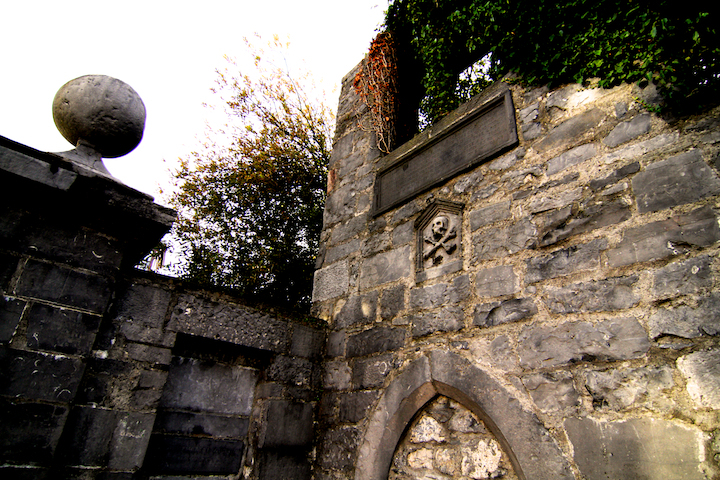Galway is a river-bounded city in the west of Ireland, founded by the Anglo-Normans in the 12th century. The modern name comes from the anglecisation of the original name of the river, Gaillimh, which legend holds to have been named for the daughter of an ancient chieftain who drowned in its waters. Her distraught father remained at the banks of the river, keeping his daughter’s spirit company, and the original settlement sprung up around his impromptu camp.
Originally just a military fort with tiny corresponding hamlet, it wasn’t long before merchants and traders were attracted to the transportation ease of its waterways and the safety of its defensible walls and good relations with the English. By the Middle Ages, Galway was ruled by an oligarchy of twelve merchant families, mainly now gaelicised Normans who had originally come over in 1172 with Richard “Strongbow” de Clare’s invasion. One of these families was the Lynches.
In 1484, the citizens of Galway was permitted under statute to select a Mayor and thereby be formally recognised as a city-state; they chose one Pierce Lynch. To mark their prosperity and prominence, the Lynch family built Lynch Castle, still standing today (albeit standing as an Allied Irish Bank).
In 1493 another member of the Lynch family was elected, a James Lynch, by all accounts a fine, upstanding man and a scrupulously fair Mayor. But James had a tearaway son, a Walter Lynch. Walter became suspicious that there was something between one of his sweethearts, Agnes, and a young, well-respected Spaniard, and one night in a jealous rage, he stabbed him.
Walter was duly charged, convicted and sentenced to hang for the crime of murder. Fearful that there would perhaps be reprisals from the Mayor or the rest of the powerful Lynch family, nobody could bring themselves to actually carry out the sentence. Many people who were loyal to Walter suggested to James that he transmute the death sentence into imprisonment or labour. Although James loved his son – his only child – he went on record that he couldn’t put sentiment above the law and the responsibilities that the position of Mayor brought.
James had Walter brought to their own house, which was next to the prison. Whether this was meant as a last act of kindness or because protestors were blocking the route to the usual site of execution is a matter of differing opinion. Bringing Walter to an upstairs room, he embraced his son, putting the noose around his neck and pushing him from the window, which faced the street. James himself held the other end of the rope until his son was hanged. His actions led to the origin of the verb “lynch” and the phrase “lynch-mob”, a rather unpleasant legacy.
After the original house fell into disrepair in the 1800s, the window was salvaged and today forms part of the Lynch Window Memorial which can be seen in Market Street and is pictured above.
Photo credit for the shot of the Lynch Memorial Window: IRElogue
NB: The Lynch family went on to produce everyone’s favourite revolutionary and student-poster darling, Ernesto “Che” Guevara. But they weren’t all bad, because they also produced me.


According to a one time professor of genealogy from UL, my family is also related to Ernesto. I guess that makes us cousins. Distant mind you.
According to Family legend, James Lynch is my ancestor. A witch came down from the hills and cursed him for what he’d done to his son. The witch said the family would be driven from the shores of Ireland and their descendants would never live there again. In the time of Cromwell, the Lynch’s were driven from Ireland and fled to the American Colonies. Do you know if James had any other sons? Or if Walter had any sons? It would be interesting to see how true this family legend is.
Pingback: The Black Market: The Month In Metal – February 2018 - Stereogum